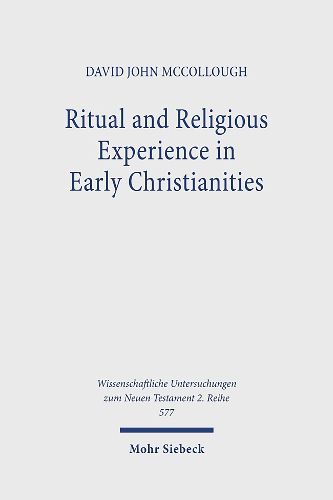Readings Newsletter
Become a Readings Member to make your shopping experience even easier.
Sign in or sign up for free!
You’re not far away from qualifying for FREE standard shipping within Australia
You’ve qualified for FREE standard shipping within Australia
The cart is loading…






In this volume, David John McCollough offers a narratological, discourse analysis, and literary exegesis of texts in Paul and Luke-Acts, followed by interpretation with social anthropological approaches. The author challenges common assumptions about Paul, such as that Paul thought the spirit to be communicated through water baptism, or the notion that 'justification' was non-experiential and unrelated to ritual. He refutes the view that Luke was either incoherent or unconcerned or a poor editor of sources regarding early Christian initiation practices and questions the belief that water baptism was the cardinal initiation rite among early Christianities. He instead argues that spirit possession marked by dissociation and glossolalia was the cardinal initiation ritual for Pauline and Lukan communities.
$9.00 standard shipping within Australia
FREE standard shipping within Australia for orders over $100.00
Express & International shipping calculated at checkout
In this volume, David John McCollough offers a narratological, discourse analysis, and literary exegesis of texts in Paul and Luke-Acts, followed by interpretation with social anthropological approaches. The author challenges common assumptions about Paul, such as that Paul thought the spirit to be communicated through water baptism, or the notion that 'justification' was non-experiential and unrelated to ritual. He refutes the view that Luke was either incoherent or unconcerned or a poor editor of sources regarding early Christian initiation practices and questions the belief that water baptism was the cardinal initiation rite among early Christianities. He instead argues that spirit possession marked by dissociation and glossolalia was the cardinal initiation ritual for Pauline and Lukan communities.